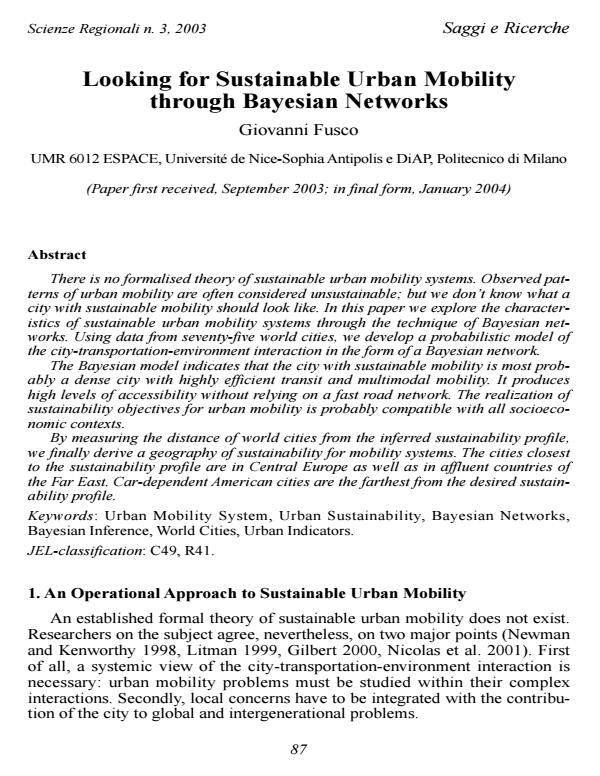Looking for sustainable urban mobility through bayesian network
Journal title SCIENZE REGIONALI
Author/s Giovanni Fusco
Publishing Year 1 Issue 2003/3
Language Italian Pages 20 P. File size 729 KB
DOI
DOI is like a bar code for intellectual property: to have more infomation
click here
Below, you can see the article first page
If you want to buy this article in PDF format, you can do it, following the instructions to buy download credits

FrancoAngeli is member of Publishers International Linking Association, Inc (PILA), a not-for-profit association which run the CrossRef service enabling links to and from online scholarly content.
There is no formalised theory of sustainable urban mobility systems. Observed patterns of urban mobility are often considered unsustainable; but we don’t know what a city with sustainable mobility should look like. In this paper we explore the characteristics of sustainable urban mobility systems through the technique of Bayesian networks. Using data from seventy-five world cities, we develop a probabilistic model of the city-transportation-environment interaction in the form of a Bayesian network. The Bayesian model indicates that the city with sustainable mobility is most probably a dense city with highly efficient transit and multimodal mobility. It produces high levels of accessibility without relying on a fast road network. The realization of sustainability objectives for urban mobility is probably compatible with all socioeconomic contexts. By measuring the distance of world cities from the inferred sustainability profile, we finally derive a geography of sustainability for mobility systems. The cities closest to the sustainability profile are in Central Europe as well as in affluent countries of the Far East. Car-dependent American cities are the farthest from the desired sustainability profile.
Giovanni Fusco, Looking for sustainable urban mobility through bayesian network in "SCIENZE REGIONALI " 3/2003, pp , DOI: